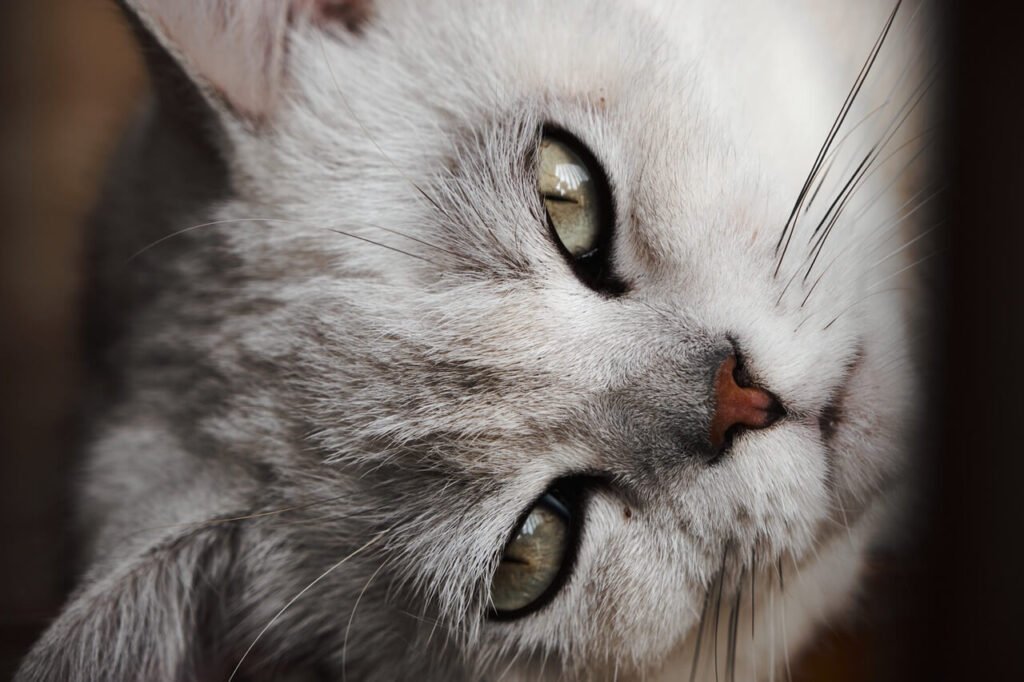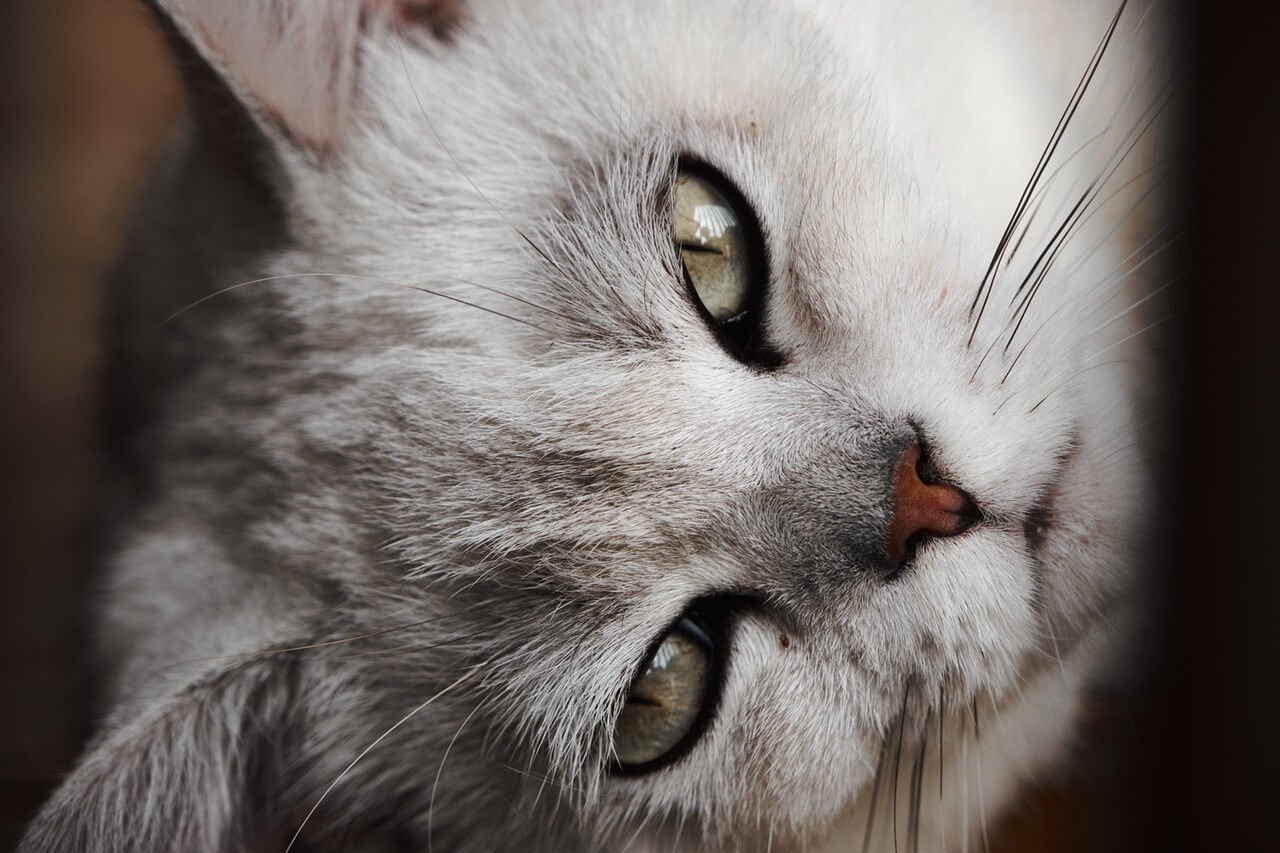Why Do Cats Lick Their Lips?
Cats are known for their quirky behaviors, and one of the most common yet intriguing habits is lip-licking. Whether it’s after a meal, during moments of relaxation, or seemingly out of nowhere, this behavior can leave cat owners curious about its meaning. While it might seem like a simple grooming habit, cats lick their lips for a variety of reasons—some harmless and others potentially signaling an underlying issue. Understanding why your feline friend engages in this behavior can help you better interpret their needs and ensure their well-being. Let’s explore the fascinating reasons behind this unique feline trait.
Common Reasons Why Cats Lick Their Lips
Lip-licking in cats can stem from several causes, ranging from natural instincts to potential health concerns. Here’s a breakdown of the most common explanations for this behavior.
After Eating or Drinking:
Cats often lick their lips to clean up any remaining food or liquid around their mouth. This is a normal part of their grooming routine.Anticipation of Food:
If your cat hears the sound of a can opener or smells their favorite treat, they may lick their lips in excitement or anticipation.Dry Mouth or Thirst:
Dehydration can cause cats to lick their lips as they try to moisten their mouth. Ensure fresh water is always available.Nausea or Upset Stomach:
Lip-licking can be a sign of gastrointestinal discomfort, such as nausea or indigestion. Monitor for other symptoms like vomiting or lethargy.Stress or Anxiety:
Cats may lick their lips when feeling nervous or overwhelmed, such as during vet visits or loud noises.
By observing the context and frequency of this behavior, you can determine whether it’s a harmless habit or something that requires attention.

Health-Related Causes of Lip-Licking in Cats
While occasional lip-licking is normal, persistent or excessive licking could indicate an underlying health issue. Here are some medical reasons to consider if your cat frequently licks their lips.
Dental Problems:
Painful gums, tooth decay, or infections can cause cats to lick their lips in response to oral discomfort.Kidney Disease:
Cats with kidney issues may experience nausea, leading to frequent lip-licking as a symptom.Allergies or Sensitivities:
Food allergies or environmental irritants can trigger lip-licking as part of an allergic reaction.Liver Disease:
Conditions affecting the liver, such as hepatic lipidosis, can cause nausea and subsequent lip-licking.Foreign Objects:
A stray hair, piece of food, or small object stuck in the mouth may prompt your cat to lick their lips repeatedly.
If you suspect a health-related cause, consult your veterinarian promptly to address any potential concerns.
Check this guide 👉 Why Does My Cat Pee Everywhere? Best 7 Expert Tips!
Check this guide 👉 Why Is My Cat Panting in the Car? Best 7 Expert Care Tips!
Check this guide 👉 Why Does My Cat Lick My Hair? Best 7 Expert Care Tips!
Normal Reasons for Lip-Licking | Potential Health Concerns |
|---|---|
Cleaning after meals | Dental pain or gum disease |
Anticipating food | Kidney or liver dysfunction |
Grooming behavior | Nausea or digestive upset |
Smelling something interesting | Allergic reactions or sensitivities |
Reacting to stress or anxiety | Presence of foreign objects in the mouth |
Behavioral Triggers for Lip-Licking in Cats
In addition to health-related factors, certain behavioral triggers can also lead to lip-licking. Understanding these triggers helps you identify patterns and respond appropriately.
Curiosity About Smells:
Cats have a keen sense of smell, and unusual scents in their environment may prompt them to lick their lips in response.Discomfort in New Environments:
Moving to a new home or encountering unfamiliar surroundings can make cats feel uneasy, leading to lip-licking as a coping mechanism.Overstimulation During Playtime:
Excessive stimulation, such as rough petting or intense play, can overwhelm your cat and result in lip-licking.Fear or Aggression:
Cats may lick their lips when feeling threatened or unsure how to react to a perceived danger.Boredom or Frustration:
Lack of mental stimulation or unmet needs can manifest as repetitive behaviors, including lip-licking.
Recognizing these behavioral cues allows you to address the root cause and provide comfort to your feline companion.
When to Be Concerned About Lip-Licking
While occasional lip-licking is usually harmless, certain signs indicate that it’s time to seek professional advice. Being proactive ensures your cat stays healthy and happy.
Excessive Frequency:
If your cat licks their lips constantly throughout the day, it could signal an underlying issue requiring investigation.Accompanying Symptoms:
Look for additional signs like drooling, pawing at the mouth, or changes in appetite, which may point to a medical problem.Sudden Onset:
A sudden increase in lip-licking without an obvious trigger should raise concern and prompt a vet visit.Weight Loss or Lethargy:
These symptoms combined with lip-licking could indicate a serious condition like kidney disease or diabetes.Behavioral Changes:
If your cat becomes withdrawn, aggressive, or unusually clingy alongside lip-licking, it’s worth consulting a professional.
Early intervention can prevent minor issues from escalating into major problems.
Tips for Reducing Stress-Related Lip-Licking
If your cat’s lip-licking is linked to stress or anxiety, there are steps you can take to create a calmer environment. These tips can help reduce stress triggers and promote relaxation.
Provide Safe Spaces:
Offer hiding spots or cozy areas where your cat can retreat when feeling overwhelmed.Use Calming Products:
Consider pheromone diffusers or sprays designed to soothe anxious cats.Stick to a Routine:
Cats thrive on predictability, so maintaining consistent feeding and play schedules can minimize stress.Limit Loud Noises:
Reduce exposure to sudden or loud sounds, which can startle your cat and trigger lip-licking.Engage in Playtime:
Regular interactive play helps burn off excess energy and reduces anxiety.
Creating a peaceful environment can significantly decrease stress-related behaviors like lip-licking.
How Diet Influences Lip-Licking
Your cat’s diet plays a crucial role in their overall health and can influence behaviors like lip-licking. Here’s how nutrition impacts this habit.
High-Quality Ingredients:
Feeding premium, balanced diets reduces the risk of digestive issues that may cause lip-licking.Avoiding Artificial Additives:
Some cats are sensitive to artificial flavors or preservatives, which can irritate their stomachs.Proper Hydration:
Wet food or adding water to dry kibble encourages hydration, preventing dry mouth and associated lip-licking.Monitoring Portion Sizes:
Overfeeding or underfeeding can disrupt digestion, leading to discomfort and lip-licking.Identifying Food Allergies:
Gradually eliminate potential allergens to pinpoint foods that might be causing adverse reactions.
A thoughtful approach to feeding supports your cat’s health and minimizes unnecessary behaviors.
Fun Facts About Cat Behaviors
Cats exhibit a wide range of fascinating behaviors beyond lip-licking. These fun facts shed light on their unique quirks and instincts.
Kneading Is a Sign of Comfort:
Cats knead soft surfaces to mimic nursing behaviors from kittenhood, showing trust and contentment.Chattering at Birds:
The chattering sound cats make while watching birds is believed to mimic predatory calls or express excitement.Headbutting Shows Affection:
When your cat bumps their head against you, it’s a form of bonding and marking you as part of their territory.Purring Isn’t Always Happy:
Cats sometimes purr to self-soothe during illness or stress, not just when they’re happy.Sleeping in Tight Spots:
Cats prefer enclosed spaces for sleeping because they feel safer and more secure.
Learning about these behaviors deepens your appreciation for your feline companion’s complexity.
Frequently Asked Questions About Cats Licking Their Lips
Is it normal for cats to lick their lips after eating?
Yes, it’s completely normal. Cats often lick their lips to clean up leftover food particles or redistribute saliva.
Can lip licking indicate dehydration?
While not directly linked, dehydration can exacerbate certain behaviors. Ensure your cat always has access to fresh water.
Should I worry if my cat licks its lips while sleeping?
Not necessarily. This could be a reflexive action or part of dreaming. Watch for other unusual behaviors before worrying.
How do I know if my cat’s lip licking is due to stress?
Look for additional signs like hiding, vocalizing excessively, or avoiding interaction. Addressing the root cause of stress is crucial.
When should I take my cat to the vet for lip licking?
If the behavior becomes frequent, obsessive, or is accompanied by symptoms like drooling, vomiting, or lethargy, schedule a vet visit immediately.
Understanding Your Cat’s Lip-Licking Behavior
Cats communicate through subtle actions, and lip-licking is one way they express their physical and emotional state. By paying attention to the context and accompanying behaviors, you can decipher whether this habit is harmless or indicative of a deeper issue. Whether it’s addressing stress, ensuring proper hydration, or seeking veterinary care, being attentive to your cat’s needs strengthens the bond you share. Remember, every flick of the tongue tells a story—your job is to listen and respond with love and care.
Cat Anaphylactic Shock Treatment Costs: Best 7 Expert Tips! – Learn about costs, treatments, and financial aid options to save your cat’s life.
Exocrine Pancreatic Insufficiency in Cats: Best 7 Tips! – Learn to spot symptoms, manage EPI effectively, and improve your cat’s quality of life with expert advice.
Cost of Dog Anaphylactic Shock Treatment: Best 7 Tips! – Learn about emergency costs, financial planning, and ways to manage expenses for your dog’s care.
Exocrine Pancreatic Insufficiency in Dogs: Best 7 Tips! – Learn to spot symptoms, manage EPI effectively, and improve your dog’s quality of life with expert guidance.





